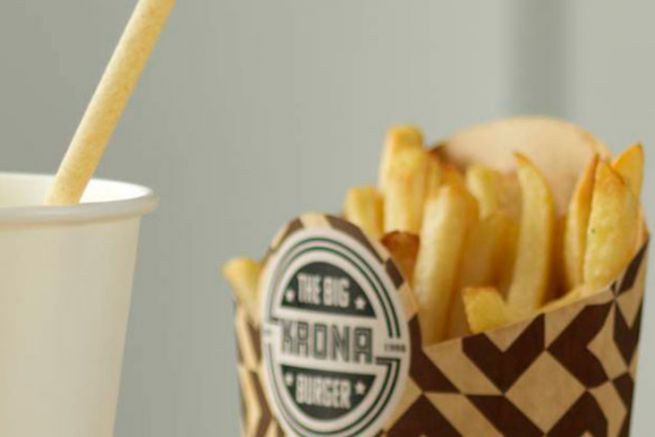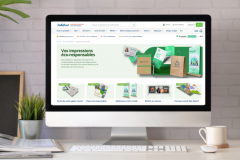Single-use cardboard dishes or reusable dishes, which is the best choice for environnement?? The study published by the trade association of paper-based food packaging manufacturers, the European Paper Packaging Association ( EPPA ), has addressed this issue.
And the study, carried out by the independent Danish consultant Ramboll, concludes that single-use packaging for paper-based food and drinks is better for the environment than reusable tableware in Europe's fast food restaurants.
The authors of the study conducted a life cycle assessment (LCA) using current data from the paper, packaging and food service industries to compare the one-year environmental performance of typical disposable and reusable containers used in a quick service restaurant. 24 single-use cardboard packaging or dishes (cup, salad bowl, plate, lid, ice cream cup, cutlery, French fryer cone, etc.), 10 made of paper or cardboard and 14 made of polypropylene (PP) alone or made of PP, ceramic, glass and steel, were screened.
And the results are indisputable: reusable tableware would generate 177% more CO2 equivalent emissions than single-use paper-based solutions, require 267% more water, produce 132% more fine particles and increase soil acidification by 72%.
Washing and drying, the two main problems with reusable dishes
"The main problems with reusable products are the energy and water they consume during washing and drying to ensure their hygiene and safety for reuse by customers. This is also confirmed when the most efficient washing technologies are applied, says Antonio D'Amato, President of EPPA. This means that single use is better for the climate and does not aggravate water stress problems (degradation of freshwater resources in terms of quantity, editor's note) ...which is now a growing problem in many European countries."
Eric Le Lay, EPPA Vice President, added: "Contrary to popular belief due to the lack of scientific evidence and a systems approach, this study shows that reusable products can have significant environmental costs that are often forgotten, and that single-use food packaging is preferable for the environment, for health and for meeting the EU's Green Deal targets"









